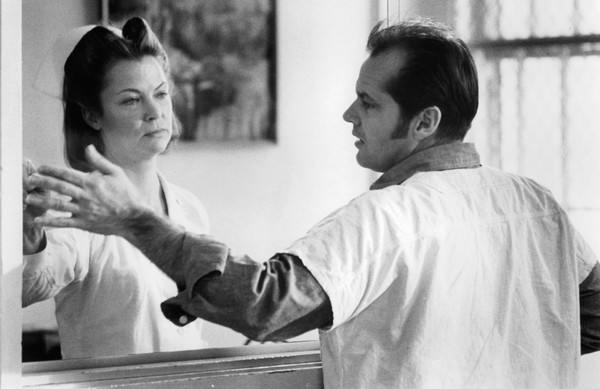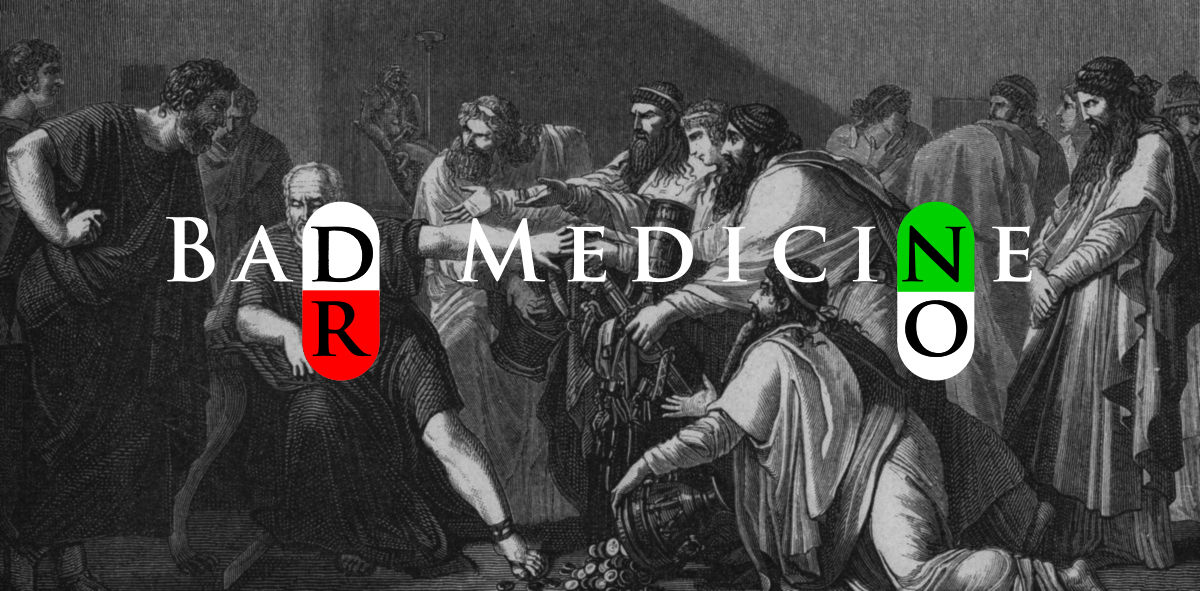Comfortably Numb

A clip, heard on Radio Four’s The Film Programme yesterday, reminded Dr No of a vaguely remembered article by Milos Forman, director of One Flew Over the Cuckoo’s Nest, which posed The Czech Question: Do You Want to Live in a Zoo or a Jungle? On the one hand, Forman suggests, “Life in the zoo is somehow comfortable. You don’t have to try hard and you still get your food. True, you don’t have any choices: you eat what they give you, but you do eat. And you are protected: No tiger will attack you, no snake will bite you. True, you are in a cage, but so are the tiger and the snake”; on the other, he suggests “the jungle is alluring, beautiful. You can see it in the eyes of East Germans when they cross the wall. They are fascinated by the variety of colo[u]rs that life in the jungle can offer. And you are free! You can go wherever, whenever and however you wish. But you can get lost, or attacked by the tiger, bitten by the snake, stung by parasites or leeches. It will not be easy for people who have lived for decades in the zoo to adapt”.
This passage, Dr No believes, highlights the allure not of the jungle, but of lockdown, willing submission to authoritarianism in the face of covid, and even vaccination. Staff working in the forty percent of businesses that have furloughed staff don’t have to try too hard, but they still get paid. They are protected from covidiots. True, they are in a cage, but so too are the covidiots, and the offer of protection provided by the vaccine goes without saying. But, over time, if not hidden on the dark side of the moon, those embracing the zoo have become comfortably numb, exchanging a walk on part in the war for a lead role in a cage, lost souls swimming in a fish bowl, running over the same ground, finding the same old fears. It was the same fear of freedom that kept Nurse Ratched’s voluntary patients, who were legally free to leave any time they want, stuck on her ward forever.
The latest ONS Coronavirus (COVID-19) Infection Survey report, covering the week beginning 7th June 2021, estimates that over 8 out of 10 adults, 86.6%, in England have antibodies to SARS-CoV-2, with similar figures for other home nations. If the presence of antibodies confers immunity — likely, but not yet proven — then we have already comfortably exceeded the threshold required for herd immunity. Current estimates of the R number for Covid–19 in England are between 1.2 and 1.4, growing at between 3 and 5% per day, which translates to a herd immunity threshold of between 16 and 28%. Using R0, say around 2 to 3, gives thresholds between 50% and 66%. Yet in England, 86.6% already have apparent immunity, a percentage sufficient to achieve herd immunity for a disease with an R0 of around 7. We have already comfortably exceeded even the wildest most exaggerated requirements for herd immunity.
Yet we remain in partial lockdown, most foreign travel is banned or made impossibly awkward, masks are still mandatory. Cases, or rather positive test results, are on the rise; new scariants emerge, including the delta plus scariant, and it is only a matter of time before the delta plus plus very scary scariant appears. The climate of covid fear remains very present, with many still comfortably numb in their cages. The biggest challenge of the next twelve months isn’t going to be seeing off ‘pandemic’ covid–19 — we are already there, with the disease set to remain at endemic levels with occasional waves from time to time — it is going to be getting the comfortably numb to start to live a normal life again. Dr No wagers that it will take more than unlocking the cages to get them to venture forth into the real world. Like Nurse Ratched’s voluntary patients, they would rather remain in the zoo than face the risks of the jungle.

I’m left with the feeling that talk of herd immunity threshold was, perhaps, the main reason we got ourselves into this mess. From the very beginning this was (mis)presented as the conclusion of an epidemic, yet here we are, with apparently widespread immunity and still increasing ‘case’ numbers.
I’m sure Dr No is a aware that flu epidemics have always come and gone, with relatively low numbers of people attacked (15% of population is a very good haul), and yet further waves appeared in subsequent years. If widespread immunity caused those waves to peak and fall, how could similar sized waves emerge in subsequent years? R.E. Hope-Simpson asked, ‘Why do influenza epidemics cease?’ I’m still yet to find a good answer. But cease they always have done, and for much of our history they have done so without masks, or lockdowns, or vaccines…or herd immunity.
Misa – all very good points, that underline how much we don’t know about respiratory viral endemic diseases. Why does any seasonal wave/pandemic fizzle out, as they always do? Both of the covid peaks fizzled out largely of their own accord (the timings of the peaks tell us this, the peaks and the beginning to the decline happen before any non-pharmaceutical interventions could have any effect, eg the last wave peaked on 1st Jan (7 day average), before lockdown and before people got vaccinated in large numbers). Dr No has a half written post that touches on our (non-)understanding of the natural history of these diseases, which he will (hopefully) publish in the new future.
Unfortunately, the incurious, self-proclaimed science types smugly inform us that ‘politicians don’t understand exponential growth’. Certain in their grasp of scientific theory, these people seem not to have noticed that history is the better guide. It was truly sobering to see, after the peak of the first wave, that so many believed we had controlled the virus.
I look forward to Dr No’s forthcoming post.
Bullish public health specialists battering politicians with cod science do indeed turn up in the post. The admitted inability of the lay politicians to understand the science also comes into it indirectly, insofar as the major report quoted in the post was commissioned by an incoming health secretary struck by how difficult is was for lay people to make sense of what the ‘experts’ said. One of the headings in the Reflections section (page 83) of the report is “Thinking Twice About Medical Knowledge”, especially when the disease in question is a slippery disease, as flue and covid are. In other words, consider the possibility the ‘experts’ are wrong.
The post is pretty much finished (didn’t need much to finish it) and will be posted shortly. Rather hot on the heels of this post, but there you go!
“It’s a jungle out there” — and so it should be, best serving our primal instincts and thus providing energy and zest for life with all of its risks and potential peril.
The alternative; a tranquilised, homogenised, sanitised existence is completely incongruous with human nature, which ain’t for me! See Ned Beatty’s excellent monologue in the film Network (1976) — prophetic of the times we’re in.
Infantilised by the ‘cradle to the grave’ (sperm to worm) welfare State; indoctrinated in entitlement, the superannuated toddlers believe they are entitled to the money of others for their own use (the richer the others, the greater their entitlement to it) and that someone else has a duty to provide them with what they can’t/don’t provide for themselves. And they expect the State to make sure they get it and look after them. I have a Right! Called ‘fair’ and ‘equality’ the correct term is greed, coveting thy neighbour’s goods. Self-reliance, self-respect, self-discipline, self-responsibility, self-sustaining… forget it.
It started in 1945. Hard to see how to re-educate a brainwashed generation, bringing up their children likewise.
Everywhere I look – even on Dr No’s superb blog – I see people citing “cases” (positive PCR results).
Nowhere do I see it mentioned that PCR is not a diagnostic test, that the lateral flow procedure is even less satisfactory, and that as Dr Kary Mullis (who invented PCR) warned, you can use it to find anything in anyone.
Vast amounts of time, money and trouble are being wasted, and immense clouds of verbiage are rolling across the landscape – all about absolutely nothing.
Do you ever notice mention of cycle counts in connection with alarmist declarations of “rising cases”? The cycle count is like a handle that can be set to produce as many “positive” results as desired. And we are never allowed to know what the cycle count was.
Cynics might conclude the PCR tests’ real purpose is to gather DNA from the entire population – it’s quite obviously no longer about covid, even if it once might have been.
Funnily enough, Ed, I was just listening to a discussion of that very possibility produced by UK Column!
https://www.ukcolumn.org/video/pcr-testing-and-the-genome-beast
I listened to the first five minutes or so, then left as I thought it was rather elementary and unlikely to tell me much. But I might be wrong!
Tom plus (are you perhaps taking a leaf out of the scariant manual?) – Dr No usually refers to positives, not cases, eg “Cases, or rather positive test results, are on the rise…” from the post above.
There’s an interesting JAMA paper, picked up via Dr Sebastian Rushworth’s blog: bottom line is that doctors over-diagnose (estimate the probability of disease) wildly, especially in the absence of test results. Given a positive test result, they still over diagnose, but not by so much, and given a negative test result, they do a little better.
The study was done using clinical vignettes, not real breathing patients, and that may, or may not, have influenced the results (because with a real patient you are picking up all sorts of subliminal clues). Two if the four vignettes used were infections (pneumonia and urinary tract infection), and the doctors were mostly juniors.
This has obvious implication for covid diagnosis and death certification. Any clinical diagnosis (ie no PCR test) is likely to over-estimate the probability of actual disease considerably. Since we don’t really know the true (against viral culture) sensitivity/specificity of PCR tests (to rerun an old analogy, PCR tests may well be the same as running a super magnet over a haystack, and then using the rusty broken needles you find stuck to your magnet to claim you have a working sewing machine), we can’t say how a positive PCR test influences the probability of actual disease, but what we can say, from what we know about the test, is that a positive PCR test is not a certain marker of actual disease, making it quite possible the post-test probability is little different from the pre-test probability, so again considerable over diagnosis. Anyone who tests negative probably does slightly better, ie avoids a covid diagnosis when they shouldn’t have one (unless the test was a LFD, in which case the opposite applies…).
The whole thing is a complete shambles. The possibility that Dildo Harding might be the next Chief Pongo of NHS England should fill any citizen of this Sceptre’d Isle with absolute horror.